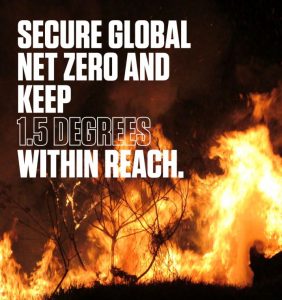Governor taking Hawai‘i’s climate message to COP26
Posted on Oct 27, 2021 in Capitol Connection, Featured, Main
Governor Ige is leading the state’s delegation to COP26, the UN climate change conference in Glasgow, Scotland.
How do you get the nations of the world to agree on ways to fight global warming? One major answer is the United Nations Climate Change Conference (COP26) Oct. 31- Nov.12 in Glasgow, Scotland. World leaders, such as U.S. President Joe Biden, will be there, along with governors from the U.S. Climate Alliance — including Governor Ige. As the head of an island state, the governor has joined with other state and national leaders in fighting climate change, even when the previous administration withdrew the U.S. from the Paris climate accord.
“Our state has been at the forefront of advocating aggressive action to curb global warming,” said the governor, noting that Hawai‘i was first in the nation in 2017 to enact legislation committing to the UN Paris Agreement. “We know that climate change is real because we see firsthand the effects of coral bleaching, sea level rise and wildfires.” The governor will lead a COP26 delegation that includes Suzanne Case, director of the Department of Land and Natural Resources, Scott Glenn, head of the Hawai‘i State Energy Office and other environmental advocates. “We have to keep global warming at or below 1.5 degrees Celsius or the damage will be irreversible,” said Governor Ige. “Our state’s Sustainable Hawai‘i Initiative and the 2050 Sustainability Plan commit us to reducing greenhouse gases, promoting clean energy and protecting our natural resources.”
Why does limiting temperature rise to 1.5 degrees matter? According to COP26, “At 2 degrees Celsius of global warming, there would be widespread and severe impacts on people and nature. Almost all warm water coral reefs would be destroyed (with) several meters of sea level rise over centuries to come. At 1.5 degrees C. the impacts would be serious but less severe. There would be lower risks of food and water shortages, lower risks to economic growth and fewer species at risk of extinction. That is why every fraction of a degree matters.”
